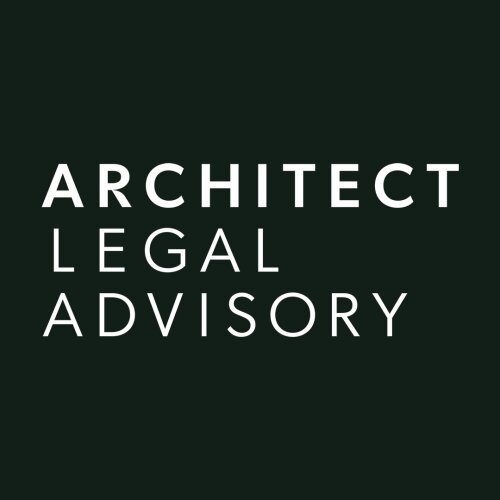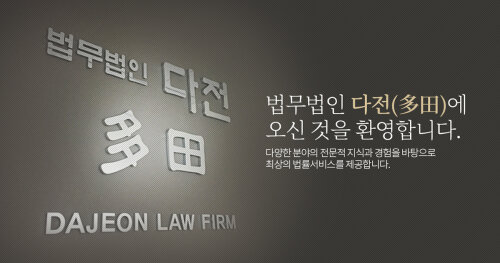Best Transportation Lawyers in South Korea
Share your needs with us, get contacted by law firms.
Free. Takes 2 min.
Or refine your search by selecting a city:
List of the best lawyers in South Korea
About Transportation Law in South Korea:
Transportation in South Korea is a crucial aspect of daily life, with a well-developed system of public transportation including buses, subways, trains, and taxis. The country also has a robust network of roads and highways. However, with the complexity of transportation systems, legal issues can arise that may require the expertise of a transportation lawyer.
Why You May Need a Lawyer:
There are various situations where you may require legal help in transportation in South Korea, such as accidents involving public transportation, disputes with transportation companies, licensing issues, or violations of transportation regulations. A lawyer can help navigate the legal system and protect your rights in such cases.
Local Laws Overview:
Key aspects of local laws relevant to transportation in South Korea include the Traffic Act, which regulates traffic laws and driver conduct, and the Transportation Business Act, which governs the operation of transportation businesses. It is essential to be aware of these laws to ensure compliance and avoid legal issues.
Frequently Asked Questions:
1. Can I sue a transportation company for negligence in South Korea?
Yes, you can sue a transportation company for negligence in South Korea. A lawyer can help you gather evidence and build a strong case to recover damages for injuries or losses resulting from the company's negligence.
2. What should I do if I get into an accident while using public transportation in South Korea?
If you are involved in an accident while using public transportation in South Korea, seek medical attention first and then contact a lawyer to protect your legal rights. The company may be liable for your injuries, and a lawyer can help you seek compensation.
3. How can I dispute a traffic violation charge in South Korea?
If you want to dispute a traffic violation charge in South Korea, you can challenge it in court with the help of a lawyer. It is essential to gather evidence to support your case and present it effectively in court.
4. What are the consequences of violating transportation regulations in South Korea?
Violating transportation regulations in South Korea can lead to fines, license suspension, or other penalties. It is crucial to comply with the regulations to avoid legal trouble and seek legal advice if necessary.
5. Can I appeal a decision made by a transportation authority in South Korea?
Yes, you can appeal a decision made by a transportation authority in South Korea. A lawyer can assist you in submitting an appeal and represent you in the appeals process to challenge the authority's decision.
6. How do I obtain a transportation license in South Korea?
To obtain a transportation license in South Korea, you need to meet certain requirements and submit an application to the relevant authorities. A lawyer can help you navigate the application process and ensure compliance with licensing regulations.
7. What are my rights as a passenger in South Korea?
As a passenger in South Korea, you have the right to a safe and comfortable transportation experience. If your rights are violated, such as being injured in an accident or facing discrimination, a lawyer can help you seek compensation and justice.
8. How can a lawyer help me with a transportation-related contract in South Korea?
A lawyer can review and negotiate transportation-related contracts on your behalf to ensure that your interests are protected. They can also assist you in resolving disputes related to contracts and enforce your rights under the contract terms.
9. Are there special regulations for transporting hazardous materials in South Korea?
Yes, there are special regulations for transporting hazardous materials in South Korea to ensure public safety and environmental protection. It is crucial to comply with these regulations to avoid legal consequences and seek legal advice if needed.
10. What should I do if I witness a transportation-related crime in South Korea?
If you witness a transportation-related crime in South Korea, such as a hit-and-run accident or theft on public transportation, report it to the authorities immediately. A lawyer can advise you on your legal options as a witness and help protect your rights.
Additional Resources:
For additional resources and information on transportation in South Korea, you can consult the Ministry of Land, Infrastructure, and Transport (MOLIT) website or contact the Korea Transportation Safety Authority (KTSA) for assistance.
Next Steps:
If you need legal assistance in transportation matters in South Korea, it is advisable to contact a qualified transportation lawyer who can provide guidance and representation. Be prepared to discuss your case in detail and provide any relevant documents or evidence to support your claim.
Lawzana helps you find the best lawyers and law firms in South Korea through a curated and pre-screened list of qualified legal professionals. Our platform offers rankings and detailed profiles of attorneys and law firms, allowing you to compare based on practice areas, including Transportation, experience, and client feedback.
Each profile includes a description of the firm's areas of practice, client reviews, team members and partners, year of establishment, spoken languages, office locations, contact information, social media presence, and any published articles or resources. Most firms on our platform speak English and are experienced in both local and international legal matters.
Get a quote from top-rated law firms in South Korea — quickly, securely, and without unnecessary hassle.
Disclaimer:
The information provided on this page is for general informational purposes only and does not constitute legal advice. While we strive to ensure the accuracy and relevance of the content, legal information may change over time, and interpretations of the law can vary. You should always consult with a qualified legal professional for advice specific to your situation.
We disclaim all liability for actions taken or not taken based on the content of this page. If you believe any information is incorrect or outdated, please contact us, and we will review and update it where appropriate.
Browse transportation law firms by city in South Korea
Refine your search by selecting a city.















